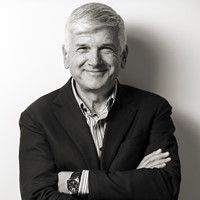It was the morning of Good Friday when my first child was born. What a profound moment in my life! It was painfully traumatic, especially for my wife, Alicia, but at the same time it was triumphantly terrific. “It’s a boy!” The whole experience was surprisingly exceptional ‒ a significant and prominent transition in my journey as a man. In that instant I was changed. I became a father. I had arrived, too!
I looked at my son. I saw him, touched him, held him, smelled and kissed him, marvelling at the miracle and revelling in the mystery. Look what I had helped make! A new place deep within me was revealed; a strange surge of tactile, tangible warmth, a form of love I had never experienced before: Isaac, my firstborn.
Alicia and I have given life to four children – Isaac, Matthias, Chiara and Shem. The joys of fatherhood have been many. When I set out on the great adventure of fathering, however, I had no comprehension of what it would take to be the father I desired to be and dreamed of being. Nor did I know how I would go about fulfilling this great responsibility.
I was ill-equipped, idealistic and naïve – no training, no plan, no method, no instructions, no tools and no real sense of the generational imprint I would make in the most important task and vocation of my life. How would I do fathering? I received more instructions on how to set up our new DVD player than anything I had been given to be a father. Like it or not, my children were a great genealogical experiment.
I am not alone in my lack of training for effective fatherhood.
I had a father who was absent much of the time. The experience of longing for my father, of needing a primary male figure in my first 20+ years and the pain of not having that figure, has been one of my greatest personal struggles. My desire and deep need for approval, validation, boundaries and initiation into manhood were not met. Some writers call this experience and journey the Father Hunger and Father Wound. There is an ancient saying, “What is not resolved is repeated.” Fr Richard Rohr has stated something very similar – “If the pain of your story is not transformed it will be transmitted.”
So what did I do when it came time to raise my own family? I repeated the historical patterns and pain of the past. I began a furniture manufacturing business in 1986 and over the years became extremely busy and stressed. The demands of a growing business and a growing family were more than I could balance, so my family suffered. My fathering was accidental and dissipated. I was frequently absent from the home and when present, I was emotionally spent. In the late 1990s I had a wake-up call.
I noticed that my children were growing up without me and I was missing them. I wasn’t the father ‒or husband ‒ I hoped to be.
I needed to modify my life direction, to grow up, to man up, to reject passivity, accept responsibility and live courageously – to become a better father, a better husband and a better man.
I began to read many books about parenting, manhood and fathering.
I realised I needed to repair the wrongs of the past and I sought forgiveness for my failings.
I also started to reflect during a time of quiet and stillness every morning, a time to talk with God and a time for God to guide and instruct me. What began with ten minutes is now about an hour. This has helped me make the necessary change process a journey, rather than a ‘one shot’ event.
I struggled with my childhood relationship with my father and with fathering my own children. As I confronted important issues, I began sharing my experiences, discovering many men struggled with the same issues.
In 2003 I began a Catholic ministry for men called menALIVE, which has sought to be a fellowship and a community of life and nurture for these men. It has also sought to encourage men to rise to their calling to be good fathers, husbands and leaders in their families and communities.
*****
My book The Father Factor, written with Peter O’Shea, is an evidence-based study on the impact of fathers on children, marriage and society.
Four factors determine success and happiness: The Father Factor, The Mother Factor, The Relationship/Love Factor and the Addiction Factor. We touch on all of these but have focused on the Father Factor because it is most in need of attention.
The book’s message is that father-child relationships matter. They help to mould our destiny. The poor state of many father-child relationships constitutes a social crisis which began decades ago. We are now suffering its consequences.
The Father Factor by Robert Falzon and Peter O’Shea was published in 2014 by Connor Court. Please visit menALIVE. To win a copy of The Father Factor, send an envelope with your name and postal address on the back to The Editor, Aurora, PO Box 756 Newcastle 2300.




























































































